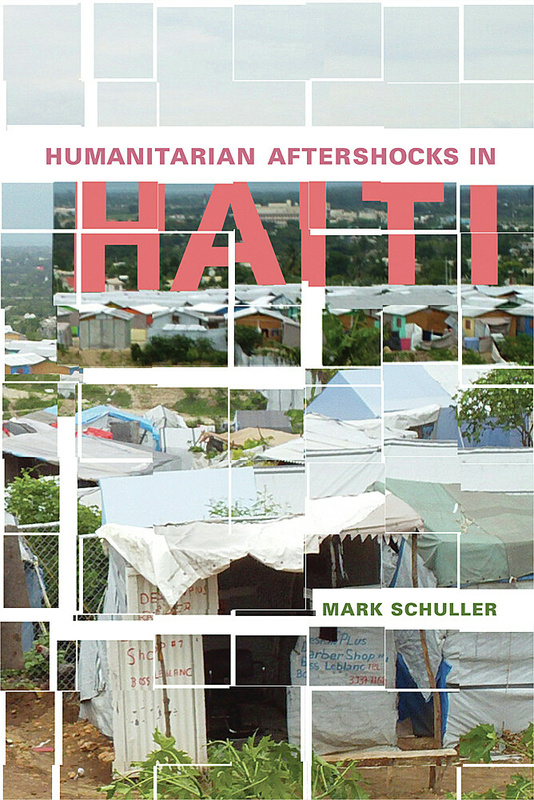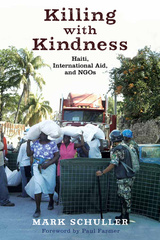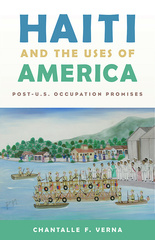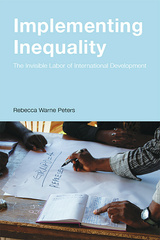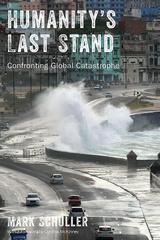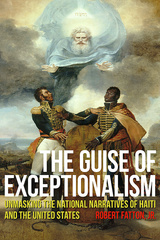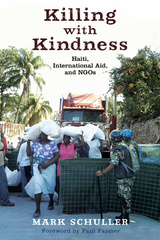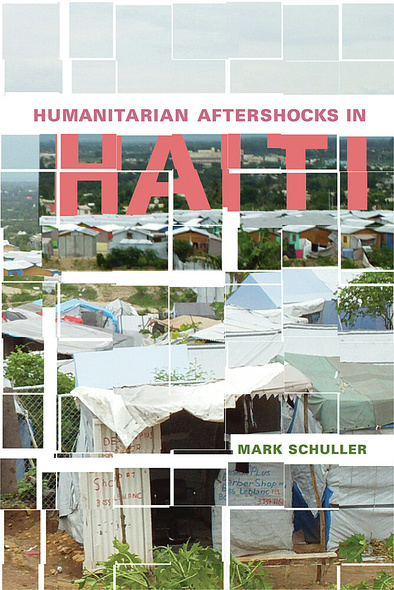
312 pages, 6 x 9
10 photographs, 4 tables
Paperback
Release Date:12 Jan 2016
ISBN:9780813574233
Hardcover
Release Date:12 Jan 2016
ISBN:9780813574240
Winner of the 2016 Anthropology in Media Award from the American Anthropological Association
The 2010 earthquake in Haiti was one of the deadliest disasters in modern history, sparking an international aid response—with pledges and donations of $16 billion—that was exceedingly generous. But now, five years later, that generous aid has clearly failed. In Humanitarian Aftershocks in Haiti, anthropologist Mark Schuller captures the voices of those involved in the earthquake aid response, and they paint a sharp, unflattering view of the humanitarian enterprise.
Schuller led an independent study of eight displaced-persons camps in Haiti, compiling more than 150 interviews ranging from Haitian front-line workers and camp directors to foreign humanitarians and many displaced Haitian people. The result is an insightful account of why the multi-billion-dollar aid response not only did little to help but also did much harm, triggering a range of unintended consequences, rupturing Haitian social and cultural institutions, and actually increasing violence, especially against women. The book shows how Haitian people were removed from any real decision-making, replaced by a top-down, NGO-dominated system of humanitarian aid, led by an army of often young, inexperienced foreign workers. Ignorant of Haitian culture, these aid workers unwittingly enacted policies that triggered a range of negative results. Haitian interviewees also note that the NGOs “planted the flag,” and often tended to “just do something,” always with an eye to the “photo op” (in no small part due to the competition over funding). Worse yet, they blindly supported the eviction of displaced people from the camps, forcing earthquake victims to relocate in vast shantytowns that were hotbeds of violence.
Humanitarian Aftershocks in Haiti concludes with suggestions to help improve humanitarian aid in the future, perhaps most notably, that aid workers listen to—and respect the culture of—the victims of catastrophe.
The 2010 earthquake in Haiti was one of the deadliest disasters in modern history, sparking an international aid response—with pledges and donations of $16 billion—that was exceedingly generous. But now, five years later, that generous aid has clearly failed. In Humanitarian Aftershocks in Haiti, anthropologist Mark Schuller captures the voices of those involved in the earthquake aid response, and they paint a sharp, unflattering view of the humanitarian enterprise.
Schuller led an independent study of eight displaced-persons camps in Haiti, compiling more than 150 interviews ranging from Haitian front-line workers and camp directors to foreign humanitarians and many displaced Haitian people. The result is an insightful account of why the multi-billion-dollar aid response not only did little to help but also did much harm, triggering a range of unintended consequences, rupturing Haitian social and cultural institutions, and actually increasing violence, especially against women. The book shows how Haitian people were removed from any real decision-making, replaced by a top-down, NGO-dominated system of humanitarian aid, led by an army of often young, inexperienced foreign workers. Ignorant of Haitian culture, these aid workers unwittingly enacted policies that triggered a range of negative results. Haitian interviewees also note that the NGOs “planted the flag,” and often tended to “just do something,” always with an eye to the “photo op” (in no small part due to the competition over funding). Worse yet, they blindly supported the eviction of displaced people from the camps, forcing earthquake victims to relocate in vast shantytowns that were hotbeds of violence.
Humanitarian Aftershocks in Haiti concludes with suggestions to help improve humanitarian aid in the future, perhaps most notably, that aid workers listen to—and respect the culture of—the victims of catastrophe.
Mark Schuller offers clear analysis, informed by empirical knowledge. This sets him apart from the usual experts on Haiti. A challenging book from an author who goes the distance to understand the 'other.''
Although the earthquake caused more devastation than the post-disaster response, Schuller's examination suggests how and why the aid response rubbed more hurt into the wound. Based on field-level data, collected with cool rigor, his argument becomes a powerful indictment. Could it have been otherwise? Read Schuller to find out.'
Honorable Mention, Barbara Christian Prize for Best Book in Humanities, Caribbean Studies Association, 2017
https://www.caribbeanstudiesassociation.org/2017-bc-award-winner/
Supported by the National Science Foundation Senior and CAREER Grant, Bellagio Center, and others, Schuller’s research on NGOs, globalization, disasters, and gender in Haiti has been published in over thirty book chapters and peer-reviewed articles as well as public media, including a column in Huffington Post
Haiti Suspends Oxfam Great Britain After Sex Scandal' by Catherine Porter
The scholarly contribution of Schuller’s Humanitarian Aftershocks is remarkable.
MARK SCHULLER is an associate professor in the anthropology department and at the Center for NGO Leadership and Development at Northern Illinois University, Dekalb, Illinois, and is also an affiliate at the Faculté d’Ethnologie, l’Université d’État d’Haïti. He is the award-winning author or coeditor of seven books including Killing with Kindness: Haiti, International Aid, and NGOs (Rutgers University Press), coeditor of Tectonic Shifts: Haiti since the Earthquake, and codirector and coproducer of the documentary Poto Mitan: Haitian Women, Pillars of the Global Economy.
List of Illustrations and Tables
Acknowledgments
List of Abbreviations and Foreign Terms
List of Names for Camp Residents
Introduction
1 Haiti’s Unnatural Disaster: Neoliberalism
2 Racing from the Rubble: Constructing IDPs
3 Hitting Home: Humanitarian Impacts on Haiti’s Households
4 Pa Manyen Fanm Nan Konsa: The Gender of Aid
5 Pòch Prela: Camp Committees
6 Aba ONG Volè: The “Republic of NGOs”
7 Colonization within NGOs: Haitian Staff Understandings
8 Fotokopi: Imperialism’s Carbon Copy
Conclusion
Notes
References
Index
Acknowledgments
List of Abbreviations and Foreign Terms
List of Names for Camp Residents
Introduction
1 Haiti’s Unnatural Disaster: Neoliberalism
2 Racing from the Rubble: Constructing IDPs
3 Hitting Home: Humanitarian Impacts on Haiti’s Households
4 Pa Manyen Fanm Nan Konsa: The Gender of Aid
5 Pòch Prela: Camp Committees
6 Aba ONG Volè: The “Republic of NGOs”
7 Colonization within NGOs: Haitian Staff Understandings
8 Fotokopi: Imperialism’s Carbon Copy
Conclusion
Notes
References
Index

